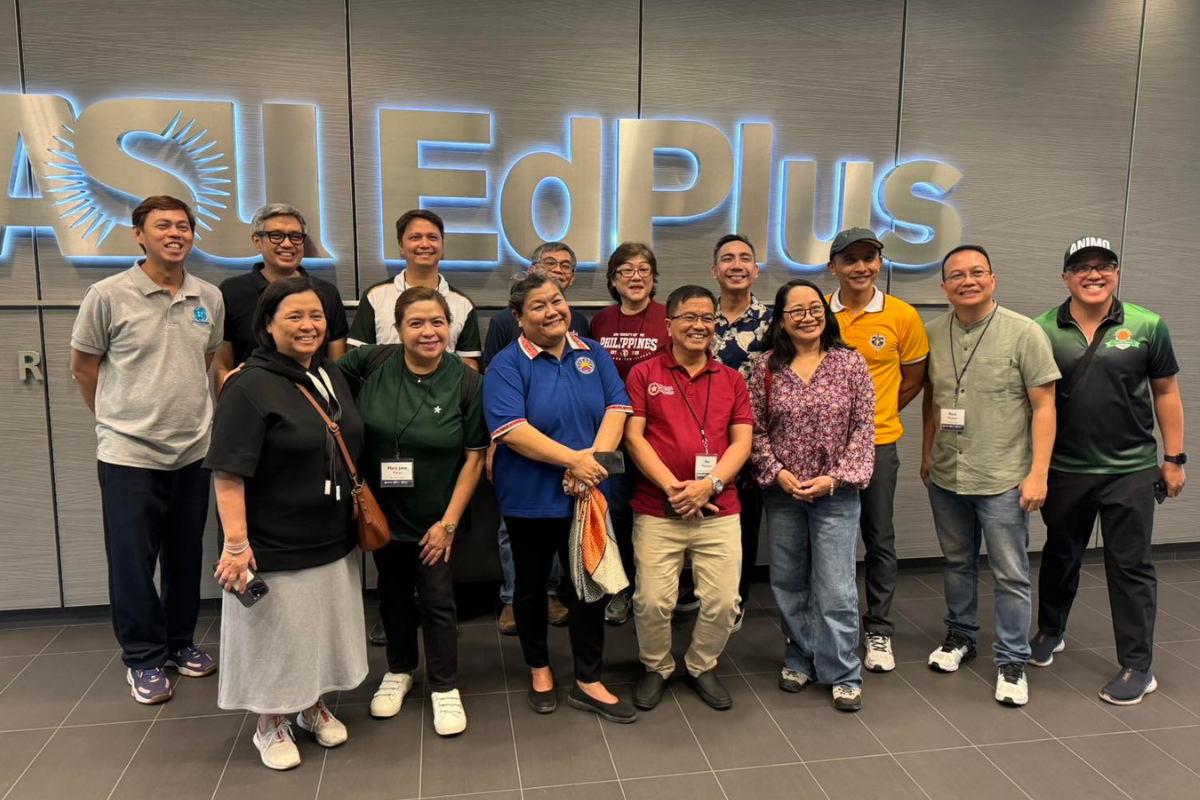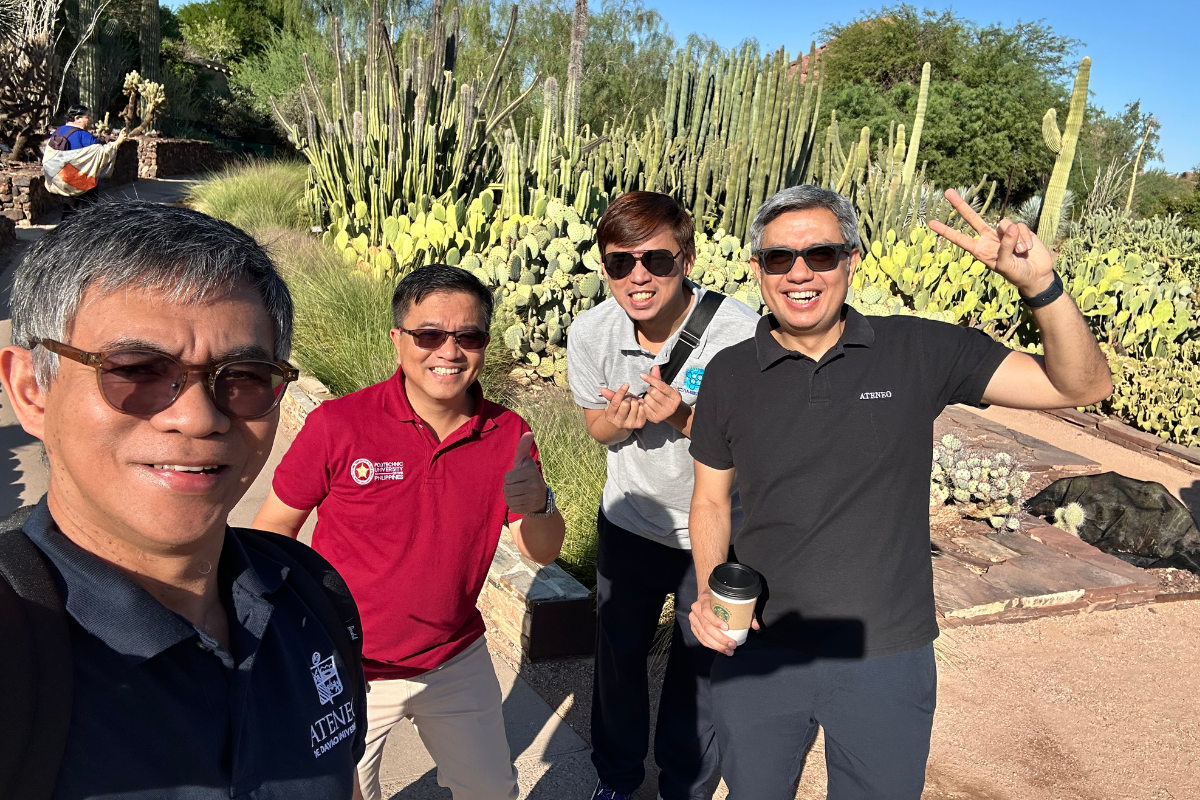In today’s fast-evolving educational landscape, transforming institutional practices and creating lifelong learning opportunities are crucial. Mr. Jeremy “Bong” Eliab, Executive Vice President of Ateneo de Davao University (ADDU), recently embarked on a transformative fellowship program at Arizona State University (ASU), an experience that he describes as “an eye-opener to the future of education.”
Mr. Eliab’s fellowship was part of the US-Philippine Partnership for Skills, Innovation, and Lifelong Learning (UPSKILL) – Innovation Leaders Fellowship Program at ASU, a program designed to empower educational leaders in the Philippines with forward-thinking strategies in university design, innovative practices, and sustainable campus management. The intensive program exposed sixteen education leaders from the Philippines to some of the most groundbreaking innovations in education today. The UPSKILL Fellowship Program is an eight-month structured experience that commenced in April, with an immersion week at ASU from 06 to 12 October 2024.
“This experience truly expanded my perspective on what a university can achieve, especially in areas like leadership development, lifelong learning, micro-credentials and digital solutions, university culture, student experience, and community engagement. It reinforced my belief that education is a continuous journey, not just for students but for institutions as well,” Mr. Eliab said.
Reimagining Education
ASU’s University Design Institute (UDI) hosted the program, offering fellows a comprehensive look at its mission to make education accessible, inclusive, and impact-driven. ASU’s model, known for its emphasis on adaptability and resilience, proved highly relevant for Mr. Eliab, particularly in ADDU’s evolving role within Davao City and the Davao Region.
Throughout the fellowship, Mr. Eliab participated in workshops and discussions on the importance of aligning educational programs with the needs of both local and global communities. This resonated with ADDU’s mission to serve as an educational institution and a hub for social responsibility and sustainable development. He noted the power of ASU’s approach in fostering community relationships and industrial partnerships, primarily through initiatives that address environmental challenges, a priority he’s eager to bring to ADDU.
Lifelong Learning and Micro-Credentials
One of the program’s highlights was ASU’s focus on lifelong learning, which aligns with Mr. Eliab’s ongoing efforts to expand the Ateneo de Davao Academy of Lifelong Learning (ADD-ALL). Through the fellowship, he explored ways to make education more accessible to a diverse range of learners. He was particularly inspired by ASU’s use of micro-credentials, short, skill-specific programs that allow learners to gain practical knowledge without committing to a full degree program.
“Seeing how micro-credentials can provide focused, accessible education was inspiring. This is exactly the type of flexibility that today’s learners need, and we are now actively developing at ADDU,” Mr. Eliab said.
With micro-credentials, Mr. Eliab aims to create opportunities that cater not only to traditional students but also to working professionals, community members, and those seeking new skills in an increasingly competitive job market.
Sustainability and Technology
Beyond academics, the fellowship also emphasized the importance of technology and sustainability in university management. Mr. Eliab learned firsthand about ASU’s extensive use of digital platforms to enhance student engagement and optimize campus safety—innovations that offer a roadmap for similar initiatives at ADDU.
ASU’s commitment to sustainable campus practices, from green infrastructure to waste management solutions, also left a lasting impression. Mr. Eliab now envisions new strategies for ADDU’s campuses, particularly the Jacinto campus, to adopt more environmentally responsible practices and sustainable facilities management. This aligns with Davao City’s sustainability goals and represents another step toward creating a campus that serves its students and the community.
Looking Forward
Now that he has returned to Davao, Mr. Eliab is excited to implement and share the insights gained from his fellowship at ASU. He has already outlined an action plan, which includes introducing micro-learning modules, enhancing campus technology for security and student services, and implementing new sustainable practices across ADDU’s campuses.
“Education is no longer confined to the walls of a classroom—it is dynamic, inclusive, and transformative. This fellowship reinforced my vision for ADDU to be a catalyst for lifelong learning and community engagement,” Mr. Eliab shared passionately.
His journey at ASU reflects a more significant shift happening within the educational sector. Institutions are reimagining their role as academic providers and as pillars of community development and innovation. His experience is a potent reminder that leaders who invest in their learning bring fresh ideas and possibilities to their communities.
This fellowship has set the stage for ADDU to expand its horizons and adapt to the demands of the 21st century. With a renewed commitment to inclusivity, sustainability, and transformative education, ADDU is poised to make a lasting impact on Davao City and beyond.




Published on
